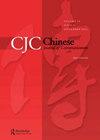Framing China’s mask diplomacy in Europe during the early covid-19 pandemic: seeking and contesting legitimacy through foreign medical aid amidst soft power promotion
IF 1.9
2区 文学
Q2 COMMUNICATION
引用次数: 6
Abstract
Abstract This analysis discusses China’s soft power push in Europe, specifically focusing on mask diplomacy during the early stage of Covid-19 outbreak. Using a sample of 233 articles published by European-based news media such as the BBC, Euronews, Politico, French 24, and Der Spiegel, from March to September 2020, we argue that China’s mask diplomacy acted as two overlapping legitimacy-seeking tools, one that demonstrated the legitimacy of the CCP’s governance (authoritarian frame) and one that sought foreign gratitude and acceptance of China as a responsible global leader (leadership frame). We also argue, however, that China’s soft power effort was overshadowed by two other dominant frames found in the articles: compensation for the government's early cover-up (remedy frame) and infringement on EU solidarity and security (threat frame). Our results also show that European media tend to default to longstanding stereotypes of Yellow Peril and Orientalism. Most reports othering China as the source and spreader of Covid-19 critically portray China’s medical aid as propaganda and compensation, thereby undermining China's soft power efforts and their credibility. Additionally, the study opened up a minor, though rather novel, discussion on China's top-down management model's positive impact on handling the health crisis in China.通过对2020年3月至9月期间英国广播公司(BBC)、欧洲新闻台(euronenews)、《政治》(Politico)、《法国24小时》(French 24)和《明镜周刊》(Der Spiegel)等欧洲新闻媒体发表的233篇文章的样本分析,我们认为,中国的面具外交起到了两种相互重叠的寻求合法性工具的作用,一种是展示中共治理的合法性(威权框架),另一种是寻求外国对中国作为负责任的全球领导者的感激和接受(领导力框架)。然而,我们也认为,文章中发现的另外两个主要框架掩盖了中国软实力的努力:对政府早期掩盖的补偿(补救框架)和对欧盟团结与安全的侵犯(威胁框架)。我们的研究结果还表明,欧洲媒体倾向于默认长期以来对黄祸和东方主义的刻板印象。大多数报道将中国视为新冠肺炎的源头和传播者,批判性地将中国的医疗援助描述为宣传和补偿,从而破坏了中国的软实力努力及其可信度。此外,该研究开辟了一个小的,虽然相当新颖的,关于中国自上而下的管理模式对处理中国健康危机的积极影响的讨论。
本文章由计算机程序翻译,如有差异,请以英文原文为准。
求助全文
约1分钟内获得全文
求助全文

 求助内容:
求助内容: 应助结果提醒方式:
应助结果提醒方式:


